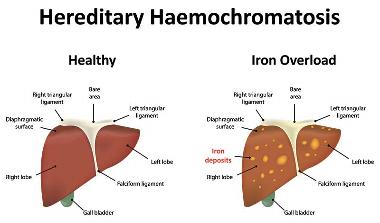What are the symptoms of haemochromatosis?
Haemochromatosis is a genetically inherited condition that most often affects people of northern European heritage. Symptoms normally begin to show around the ages of 30 to 60 and include:
- No energy
- Weight loss
- Joint pain
- Erectile dysfunction
- Irregular periods
How is haemochromatosis diagnosed?
Identifying haemochromatosis is normally done through blood tests. As it is a genetic condition, relations can be tested for the condition.
How is haemochromatosis treated?
There are 2 main procedures that can help to reduce and remove the amount of iron in your body, and these are phlebotomy and chelation therapy. You may also be advised to avoid certain foods and reduce your alcohol intake.
Book A Consultation
If you are suffering from these symptoms and would like to see a gastroenterologist in Surrey, please get in touch to arrange a consultation with Professor Ala.
Useful Links


